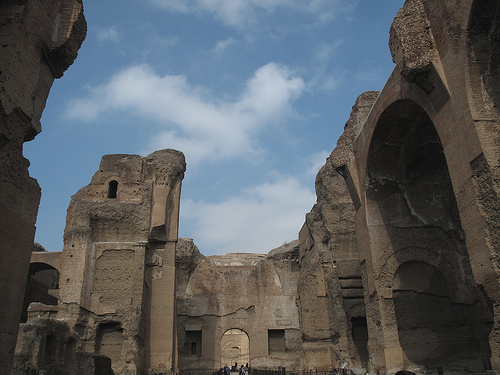When waking up men washed their hands and face with water, and after they requested the assistance of the tonsor. This was responsible for shaving the beard and cutting hair, the aristocratic classes possessed one or more of them, we know that Julius Caesar’s liked keeping all his body perfectly shaved. But those citizens who did not have such possibilities, they approached the nearest tavern, and in there were the tonstrinae, public barber shops, even if a poor slave had no possibility that his master’s barber shove him, the alternative way was to wakl in the streets of the city and hire one, as some of them were offering their services in the streets.
Cosmetics in Rome was a thriving industry, lanolin, as used nowadays for perfumery and cosmetics, was known among the Roman ladies. It was extracted from the wool of sheep and it was strongly perfumed to avoid its original smell. Slaves filled their mouth with perfumes and then spited it on the face and body of the lady they served.
Poets wrote satirical mocks about excessive colors on women’s cheeks and Petronio, describing some lady in his Satyricon, says: “On her forehead bathed in sweat flowed a torrent of oil, and in the wrinkles of her face she had such amount of plaster that I would have said that it was an old decrepit wall crossed by the rain.” An interesting detail is that they considered beautiful eyebrows that joined together just above the nose, for that it was used a compound of crushed ant eggs with flies.
Romans brushed their teeth with renal secretions (urine), the most valued were those of Iberian origin.
Roman women went to sleep fully dressed: a bra or corset, tunic, and sometimes with a mantle.

Baths of Caracalla. Photo by isawnyu.


Comments:
Zeb:
Thank you so much for this article my school project will be much better because of you
doodoo:
cool dude just loose the latin cant really understand it